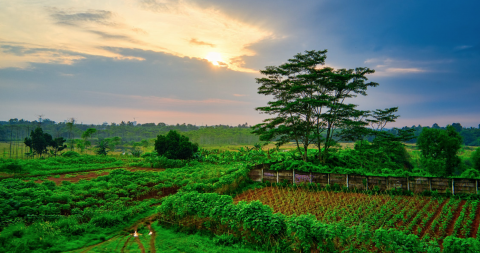
Collective catering: a vector for the diffusion of more sustainable practices in food systems?
In this thesis project, we hypothesize that collective catering establishments (daycare centers, schools, retirement homes, professional dining halls, etc.), because of their purchasing power, can play a catalytic role in facilitating the transition to sustainable food systems by orienting practices on both the supply and demand sides of sustainable products. Three main objectives comprise the thesis:
- First, we will identify associations between the local availability of sustainable products and the share of these products in public catering supply.
- Second, we will explore whether the increase in public demand for sustainable products by local authorities is a vector for the development of agro-ecological practices on the territories of these authorities.
- Third, we will analyze the causes behind the heterogeneous application of the ambitions of the Egalim law on public catering supply. This law of 2018 imposes on public catering, since January 2022, a supply of at least 50% of so-called sustainable products, including 20% of AB products, as well as the introduction of at least one vegetarian meal per week.
The results of the thesis work will allow us to identify the different obstacles and levers to meet the requirements of this law and more broadly to promote more sustainable food practices. This identification will also serve to better target the nature of the necessary aid (financial support, training, etc.).
The thesis (2023-2025) is co-financed by the European project AGRICOMPET (PRIMA call for proposals). The student Garance Treps is attached to 2 doctoral schools of the University Paris-Saclay (ABIES and DEM). The thesis involves 3 labs of C-BASC and 2 GS (Biosphera and Economie & Management). It is directed by Emmanuel Raynaud (SADAPT, AgroParisTech), co-supervised by Pierre Levasseur (SADAPT, INRAE), in collaboration with Charlotte Da Cunha (CEARC, Université Versailles St Quentin) and Caroline Penicaud (Sayfood, AgroParisTech). The General Directorate of Food of the Ministry of Agriculture and Food Sovereignty is a partner of the project.

